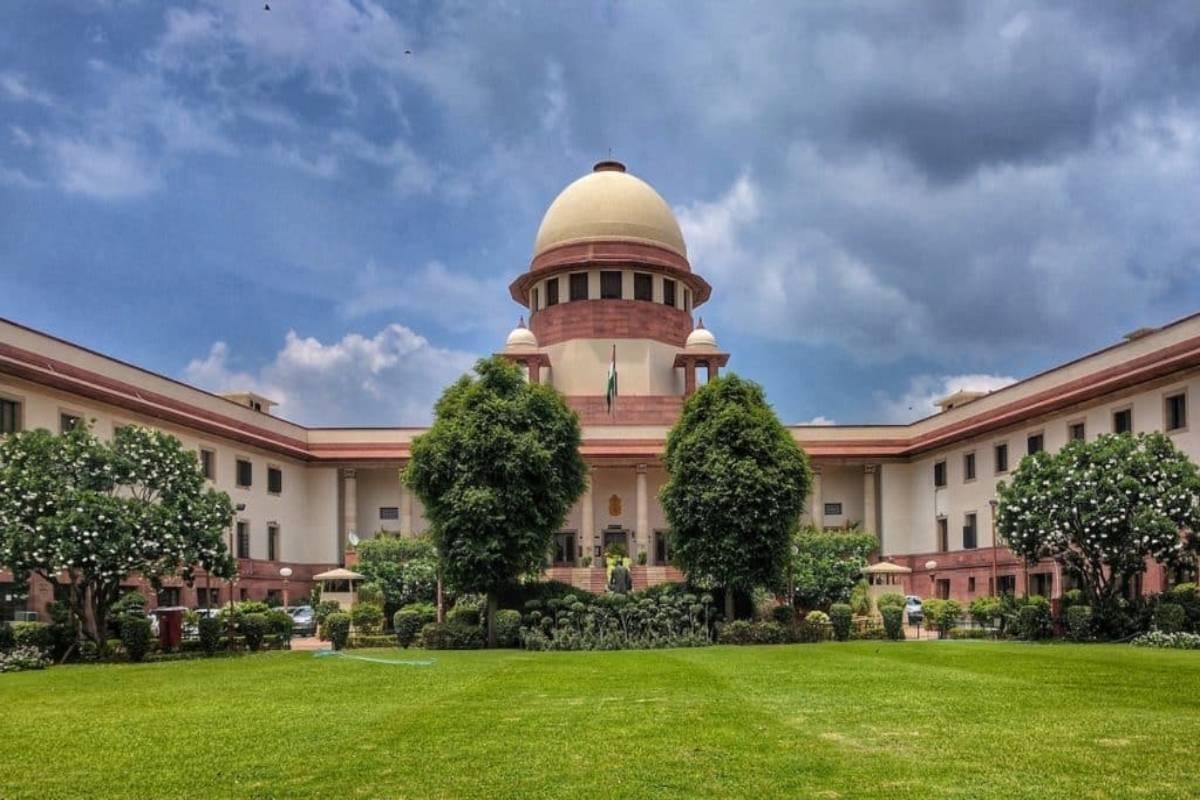WHAT HAS SC PREVIOUSLY RULED ON GAG ORDERS?
Why in the News?
- The Supreme Court granted interim protection from arrest to podcaster and influencer Ranveer Allahbadia on February 18 in relation to FIRs filed against him over remarks made on the YouTube show India Got Latent.
- A Bench comprising Justices Surya Kant and N. Kotiswar Singh passed the order.
- The Court imposed stringent conditions, including a prohibition on Allahbadia and his associates from posting any content on social media until further orders.
Stringent Conditions Imposed by the Supreme Court
- The Supreme Court directed Ranveer Allahbadia to surrender his passport to the police.
- The imposed restrictions contradict previous SC rulings that caution against excessive conditions that unreasonably restrict personal liberty while granting interim relief.
- Multiple FIRs were registered against Allahbadia in Maharashtra, Assam, and Rajasthan under:
- Bharatiya Nyaya Sanhita (BNS), 2023
- Information Technology Act, 2000
- Indecent Representation of Women (Prohibition) Act, 1986
- Allegations include promoting obscenity and engaging in sexually explicit discussions.
Petition Before the Supreme Court
- Allahbadia approached the SC seeking consolidation of FIRs and interim protection from arrest.
- Such petitions, similar to anticipatory bail applications, are filed under Article 32 of the Constitution to:
- Enforce fundamental rights
- Prevent arbitrary police action
Court’s Approach in Such Cases
- Courts may either:
- Club the FIRs
- Allow investigation under a single FIR while staying others
- This protects the accused from multiple court appearances.
- If convicted, the accused serves a common sentence instead of consecutive ones.
- In Parteek Bansal vs. State of Rajasthan (2022), the Supreme Court condemned the filing of multiple FIRs for the same offence, recognizing it as a tool for harassment and misuse of state machinery.
- In the same year, a Bench led by Justice L. Nageswara Rao suggested the creation of a body similar to the U.S. Judicial Panel on Multidistrict Litigation to centralize such cases.
Factors for Granting Interim Relief
- No fixed statutory conditions exist for granting interim relief in criminal cases.
- Judges exercise discretion based on key factors:
- Flight risk – The likelihood of the accused absconding.
- Intimidation of witnesses – The risk of threatening or influencing witnesses.
- Tampering with evidence – The possibility of obstructing the investigation.
Common Bail Conditions Imposed by Courts
- Surrendering passports to prevent flight risk.
- High bail bonds to ensure compliance.
- Periodic appearances before the investigating authority.
Supreme Court’s Stance on Unduly Restrictive Bail Conditions
- The Court has cautioned against imposing excessive conditions that infringe on personal liberty.
- Certain restrictions, such as requiring the accused to share their Google Maps location PIN or reside in a specific locality, have been deemed disproportionate and unwarranted.
Key Judicial Precedents
- Satender Kumar Antil vs. CBI (2022): The Supreme Court ruled that bail conditions that are “impossible of compliance” defeat the very purpose of release.
- Frank Vitus vs. NCB (2024)
- A Bench of Justices A.S. Oka and Ujjal Bhuyan struck down a bail condition requiring the accused to share their Google Maps location PIN, declaring it unconstitutional.
- The Court observed that continuous surveillance of an accused enlarged on bail violates their right to privacy under Article 21 of the Constitution.
Gag Order and the Doctrine of Prior Restraint
- The Supreme Court’s condition preventing Ranveer Allahbadia and his associates from airing any content on YouTube or other platforms amounts to a gag order.
- In free speech jurisprudence, this falls under the doctrine of “prior restraint”, which refers to state action that restricts speech before it occurs.
- Courts have consistently cautioned against prior restraints, deeming them impermissible except in exceptional circumstances.
Judicial Precedents Against Prior Restraint
- Rehana Fathima Case (2021): The Supreme Court stayed a Kerala High Court bail condition that prohibited women’s rights activist Rehana Fathima from publishing her views on social media.
- Mohammed Zubair Case (2021):
- A Bench led by Justice D.Y. Chandrachud, along with Justices Surya Kant and A.S. Bopanna, rejected the Uttar Pradesh government’s plea to bar Alt News co-founder Mohammed Zubair from tweeting while on bail.
- The Court ruled that such a restriction would create a “chilling effect on freedom of speech”.
- It also emphasized that Zubair’s profession required him to engage with social media and that a gag order would unjustifiably violate his right to practice his profession.
Way Forward
Judicial Safeguards Against Multiple FIRs
- The Supreme Court should expedite the establishment of a centralized mechanism to consolidate multiple FIRs, similar to the S. Judicial Panel on Multidistrict Litigation.
- Clear guidelines should be issued to prevent the misuse of multiple FIRs as a tool for harassment.
Balanced Approach in Granting Interim Relief
- Courts should ensure bail conditions do not become punitive and align with the principles of reasonableness and proportionality.
- Guidelines should be formulated to define the permissible scope of bail conditions, ensuring they do not violate personal liberty.
Protection Against Prior Restraint
- The judiciary must strictly uphold free speech rights and ensure gag orders are imposed only in rare, exceptional circumstances.
- Any restriction on an individual’s right to express opinions, especially in digital spaces, must be backed by compelling state interest and subject to strict judicial scrutiny.
Legislative and Policy Reforms
- The government should review existing laws to prevent arbitrary police action under IT laws, criminal provisions, and obscenity laws.
- A framework ensuring accountability in law enforcement actions should be developed to prevent excessive restrictions.
Stronger Judicial Precedents
- The Supreme Court should continue to set strong precedents that reinforce personal liberty and due process, ensuring a balance between state interests and individual freedoms.
Mains question
Discuss the Supreme Court’s stance on gag orders in light of recent cases. How do these rulings impact fundamental rights and personal liberty? (250 words)




